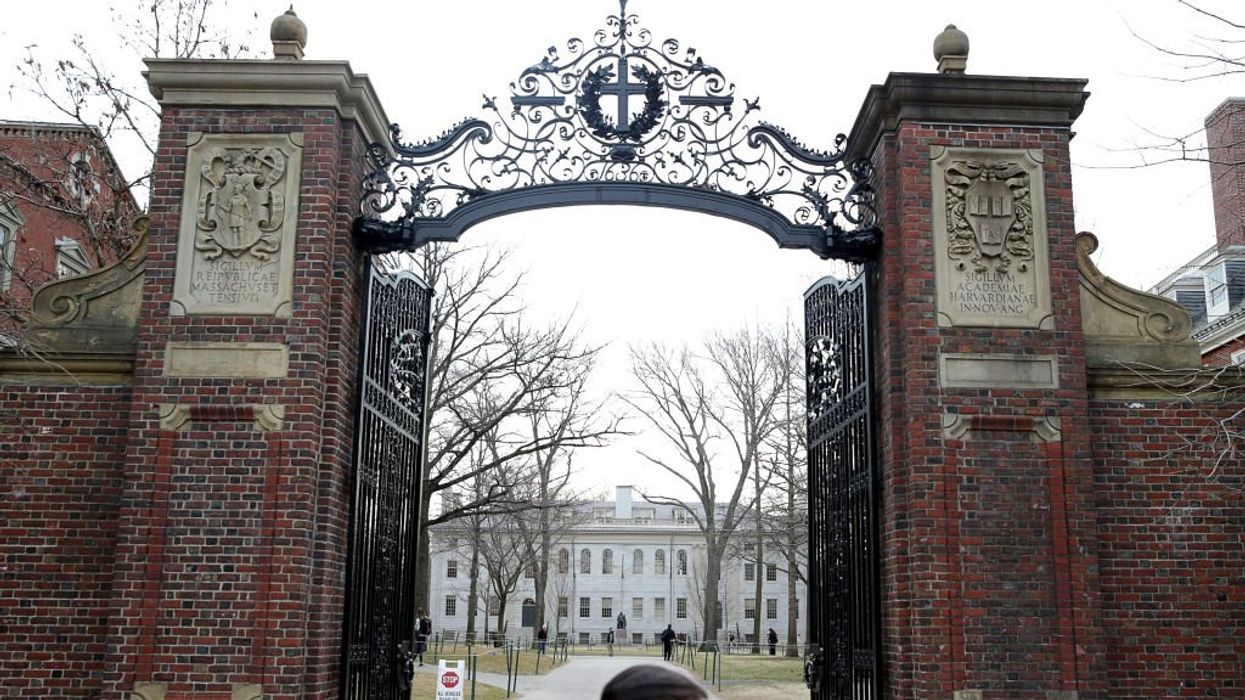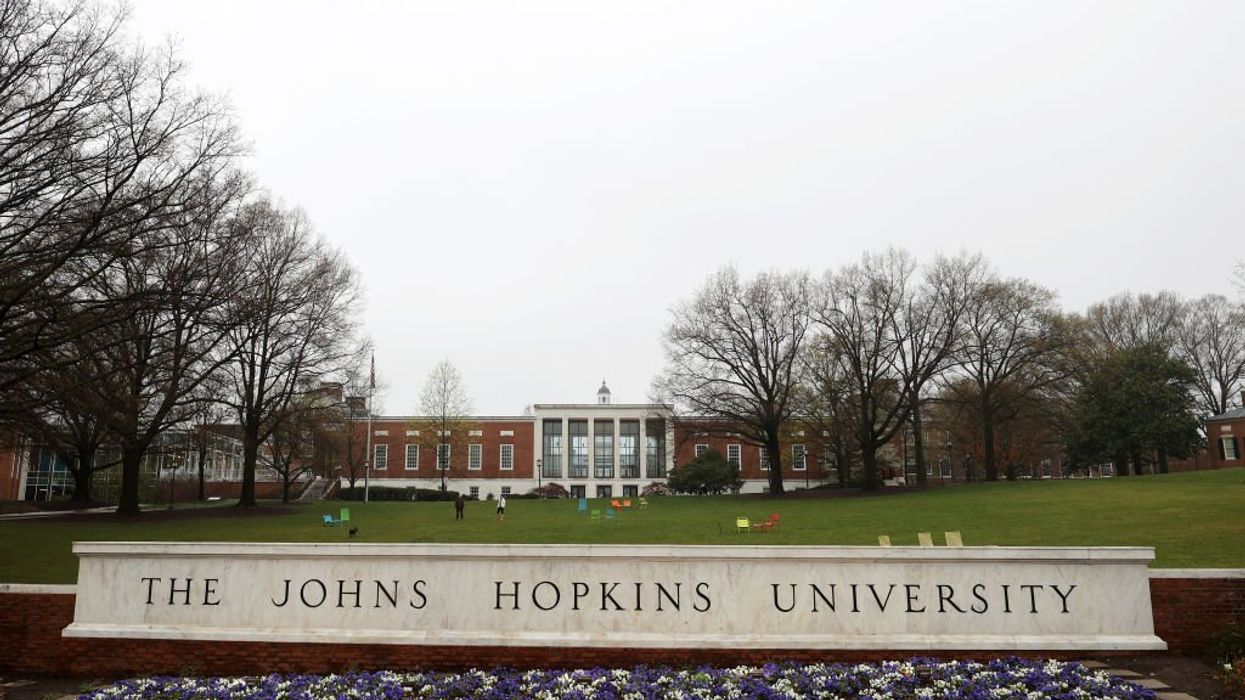Senator Mike Lee helped co-author the controversial tax plan presented by Senator Marco Rubio and Glenn confronted him on the facts today on radio. Glenn, who has been one of Lee’s most vocal supporters, asked him if he was as good at math as he is the law.
GLENN: So yesterday, we read the Rubio Tax Plan, and we think it's butt ugly. However, the Easter egg, as we called it yesterday, was -- the co-sponsor was Mike Lee. So that got us scratching your heads, because we know Mike Lee. And maybe the brilliance of this is it only looks butt ugly, and that's the genes you, because all the Democrats will say this is butt ugly if you are conservative. Mike Lee is smarter than we are. We are missing something. Please tell me that is the case, Mike Lee.
LEE: That is absolutely the case. Thank you for having me on the show. It is hard to get people's attention when introducing a tax plan --
GLENN: Oh, no. Not on America's "Charity Day", when we all feel so very charitable for all the money we gave to the charity called the government?
LEE: Right. Right.
PAT: What are we missing --
LEE: Charity does not take money from people at the point of a gun. Look, our current tax code is bad, okay. It consists of tens of thousands of pages, together with implementing regulations. The current tax code discourages work, savings, investment, new business formation, marriage, and even having children. That's bad. So what we are trying to do is offset that.
I agree with what you were saying a minute ago. It would be great if we had a single rate system. What was true for Malachi ought to be true for government. There ought to be one rate. The problem is you can't really get there from here. You can't really go from a seven-rate system to a one-rate system without raising taxes on a lot of poor and middle class folks.
So we want to simplify the code and do it in a way that's pro-growth and pro-family and offsets the penalties against the very things the government is discouraging right now and ought not be discouraging any longer.
PAT: How did the Russians do it?
LEE: I'm not really an expert in Soviet tax policy.
GLENN: Maybe you should ask someone in the Obama administration. They know all about the Soviets.
PAT: Seriously, this a tax increase for people -- we were figuring about $116,000 to $600,000 some, an increase for them, right?
LEE: No. That is a distortion brought about through the media
PAT: We were looking at it, thinking it looks like an increase.
STU: I know there's more deductions in there, so how do you get rid of that? Seems like the people in that group would pay a little more by the basic numbers.
LEE: The other overwhelming majority of them would not. 80% of all Americans would pay under a simple rate. You could call it a flat rate of 15% under the plan. All income learned below $75,000 by single filerswould be taxed a 15% under this plan, subjection to two deductions.
Then all income below $150,000 for people filing jointly, married, would be taxed at 15% also. We think it is a huge improvement over the status quo, because we don't think your taxes should go up significantly just because you get married. And right now, that is true. Today, some of hat income below $75,000 for singles and below $150,000 for joint filers is taxed at 25%, not under 15% rate, as it would be under our plan. Importantly, and I think it has been misrepresented in the press on this point, is that your tax bill wouldn't jump to 35% on all of your earnings once you make $151,000. Instead, you would pay 15% on $150,000 and 35% of the marginal $1,000 over that level.
GLENN: Can I ask a question? You are saying that we are worried about you are going to raise the taxes on a lot of people paying at the lower end. So you've got a 15% flat tax there, right?
LEE: Yes.
PAT: Two rates.
GLENN: So why don't we do one 15 and one 25 over 150?
LEE: That would been one approach, but as we have run the numbers, we think it is the best way of making it work in a way that doesn't add unduly to our deficit.
This is a work in progress. Rome wasn't built in a day, we are open to all kinds of suggestions. We are open to considering something like that. We weren't able to make the numbers work the first round when we put it together.
But this is still a big tax cut. This is still a $1 trillion tax cut, and that's putting it conservatively. Some would say it is more like a $4 trillion tax cut. This is a very aggressive tax cut, a Reagan-esque type of tax cut. You could say a lot of things about it, but you can't call a tax hike, under any interpretation, any form of mathematics cannot call this --
GLENN: You are so good with the law. How good were you at math? I just want some assurance here, because I trust you, Mike and I like you, and you are really truly one of the good guys, but we are look at this and we just don't see this the same way. We are trying to figure this out.
STU: I'm sure you have accounted for this. But looking at it from the surface, right now, there's a 35% bracket, which kicks in at $411,000 before you start paying that. Now that same rate kicks in at $75,000 with your plan. That is a significant change. I understand the rate below 75,000 for some people will be lower, but that's a big change. You are getting hit with a high rate at $75,000.
LEE: Well, that first $75,000 or first $150,000, if you are married and filing jointly, is never taxed at 35%. It's taxed at 15%, and a --
GLENN: But at $76,000, if I am single, I am paying 35%.
LEE: Yeah. I've got lots of charts and things I could show you, if we were there, but the overwhelming majority of people would not see any tax increase on this, and for most Americans, this would be a very significant tax cut. As important as anything else, it is a tax code simplification. We have to remember, complexity is a subsidy for lawyers and for accountants, for lobbyists and for people who make their business the process of contacting and influences government.
So there are no easy fixes here, but part of the beauty of this plan is that it would dramatically simplify the tax code. It is pro-family, pro-growth, and this is a tax cut plan Reagan would be proud of.
GLENN: Tell me about businesses.
LEE: On the business side, we lower the rate quite significantly down to 20%. We look to a single layer taxation system, and it's at 25%. It's a business tax rate of 25%. We get rid of the double taxation that's in our existing code on the business side by eliminating taxes on capital gains and on dividends. And so we think this is incentivizing all the right things, incentivizing investment and business formation. And overall, it's diminishing the disincentives, the penalties the government is currently putting in place on getting married and having children.
We don't think the government should be involved in those decisions. It shouldn't. And it currently is, and it is punishing the very people who are building our society and getting married and having children. We shouldn't be doing that. We also shouldn't be disincentivizing people from forming businesses.
STU: Seems like every conservative that has looked at this plan loved the business side of this. It really does look like it is a role pro-growth plan and would really help people not only in corporations, but also LLCs and things like that, correct?
LEE: Yes. And it would also be very, very helpful to growing small businesses. It would allow for immediate full expensing to provide tax relief for grows small businesses. So look, Americans, all Americans, will end up being wealthier on this. They will end up having more disposable income, end up with a lot for economic growth as a result.
I'm not saying it's perfect or the kind of plan I would design if we were designing a tax plan ab initio. We have to start
with the government that we have, rather than the one that might have been, had we more sanity in your government over the years.
STU: Real quick, before Glenn comes in with a much smarter question, I'm sure. Reading the way it's structured, it seems to me that what you are doing here -- and there's a lot of good things. The business side is good. I think the vast majority of people, individual earners would pay less under the plan. Not just the majority, but the vast majority would. Is there an element, though, where you are saying let's be honest. Every time we introduce something like a flat tax, they come out, beat it up, say it is a tax cut for the rich. So if we let some of the rich get hit at little bit, we are shielded from that and maybe we can kind of get a bunch of good policy in, but not the whole thing. Is that --
LEE: No, that's not the motivation here, nor is it an accurate description of how this operates in any objective way.
The reason is, first of all, when we get rid of the double layer taxation from the double taxation by eliminating taxes on capital gains and dividends, that by itself is opening up -- us up to a huge amount of attack from the left that hates this. They also hate the fact we are levering the playing field between big and small businesses. What we want is fair competition, instead of cronyism. What we've got now is cronyism. When we have fair competition, that creates millions of new jobs.
GLENN: But the only way you only have fair competition is to be flat.
LEE: That is a very fair point, Glenn. Again, I can't emphasize enough I would prefer a single flat --
GLENN: Because this is what you said. We can't get there from here. And I understand. I really do understand, you can't change a tire going 150 miles per hour. And so I get that. But, you know, Woodrow Wilson, FDR, Johnson, Barak Obama, they all gave us the biggest tire changes at 150 miles per hour this country has ever seen on our side, on the conservative side. We had Abraham Lincoln and Ronald Regan. That's it. Calvin Coolidge. That's it. Why is it we are so afraid of standing up and talking common sense and saying you damn right, if the Soviet Union can figure this out, we can do it. If the Marxists and the communists realize that this was a better system, then why can't we? When you look -- I don't remember the number, and I'm sure you know it, like 17.9 or 18% that's the number, no matter what you do to the rates you always collect about that much. So why aren't we just targeting that number?
LEE: Right. Well, again, I would love to go to that kind of system. On average we are able to collect about 18% of GDP through our income tax system. That seems to be a relatively constant figure, regardless of how high you set the top marginal rate, but again, what we are looking at here is the biggest simplification we can get, and one bit eliminates a lot of the --
GLENN: But may I ask you -- and Mike, you know I love you, right?
LEE: I do. And I appreciate that.
GLENN: I respect you. We all respect you and love you.
We are just so frustrated, because if people in Congress would have used and rightly so, and it's not too late -- if they would stand on their desks and shout at the top of their lungs, the IRS has become a weapon against the American people. You could redo it, because you could shut it down. There is nobody on the right or the left except for those in power, that want the IRS to become a weapon. And you have the best shot of shutting the IRS down and cleaning house right now than you have had in 100 years.
LEE: That is a very fair point, and that is exactly why we all ought to be reforming government along exactly the lines I describe in my new awesome book,Our Lost Constitution: The Willful Subversion of America's Founding Document.
PAT: Nice.
GLENN: Whoa. Man, a week on the radio tour, trying to sell your book. You got good. That was good.
LEE: That stuff doesn't go -- it just flows from the lips. If we have to choose between two rates and tax fairness for working parents, or on the other hand, a one rate system that raises taxes on all families, I think we have to go with the two-rate system. That is fair. That is conservative. This is Burkean conservatism. You are taking a set of contemporary problems and dealing with them in a practical way.
PAT: You just said A 'Barack Obama' false premise there, Mike. I don't think those are the two options, are they? Can we not work it out where it's fair for working families and -- the wealthy are working families, too, by the way.
LEE: Under the current system, we can't work it out that way, because the current system really does punish people for getting married and pushing them for having children.
GLENN: You know why?
LEE: - interacts with your senior entitlement program. There's no way that you get out of having children without a huge penalty through our tax system. The parent tax penalty is something the mainstream media goes out of its way to obscure, and this is a proposal that finally addresses that, in a way that none other does.
GLENN: Because, Mike, with those penalties are there, because it's a -- say it with me -- a Progressive income tax. So maybe we should stop trying to play in the Progressive field. I have one question for you, when we come back, if you could hold for a second. I have to take a break, then I ever one question for you, then we'll cut you lose.
Featured image courtesy of the AP
















